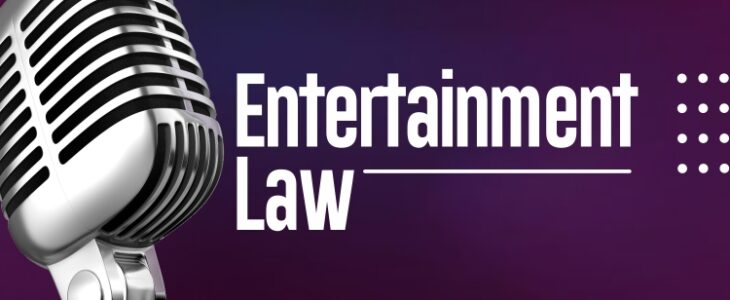
Behind every timeless tune and chart-topping hit lies a web of legal intricacies that determine who holds the copyright to a musical work. Copyright ownership in the realm of music is a complex aspect of the creative industry, mostly because it encompasses a wide range of individuals and entities, from composers and artists to producers. In the absence of a clear agreement, the ownership of an artist’s composition work can evolve into a complex legal issue.
In African Songs Ltd. v. Adegbeye (2019) 2 NWLR (Pt. 1656) 335 at 387, the Supreme Court held that a claim for infringement of copyright is actionable at the suit of the owner and all such relief by way of damages, injunction, accounts and otherwise shall be available to as claimant as is available in any corresponding proceedings in infringement of other proprietary rights. See also M.C.S. (Nig.) GTE v. Adeokin Records (2007) 13 NWLR (Pt. 1052) 616 at 627.
Oftentimes, courts determine ownership on a case-by-case basis, considering the specific circumstances of the relationship between the artist and the record label. In many cases, the default legal position is that the artist retains the copyright to their composition work.
In this article, we consider the multifaceted landscape of copyright ownership in musical works in Nigeria, shedding light on the various rights held by different contributors to a song and the legal frameworks that protect and govern these rights.
Which copyright is embedded in a song?
The Copyright Act 2022 separately lists musical works and sound recordings as works eligible for copyright protection. Song copyrights have two components:
a. Musical Work
b. Sound recording
Musical work refers to the music composition–the underlying composition consisting of the notes, lyrics, chords and melodies. Musical works are usually created by a songwriter or composer.
Sound recording is the original song or sound fixed in a recording medium such as VCD, CD or digital file, used for reproduction and distribution of a song.
Who owns the rights to a musical work and sound recording?
The rights to musical works are known as Publishing Rights. Publishing rights belong to the owner of the actual music composition–the songwriter or composer unless they have expressly relinquished these rights to a label or other party by agreement.
The rights to a sound recording are known as Master Rights. Master Rights typically belong to the artist(s), record label or recording studio unless of course they have assigned such right to a label or producer. Even where the artiste grants the label the rights to exploit the Master tape, upon the expiration of the term of Agreement, the master rights will revert to the artiste.
In African Songs Ltd. v. Adegbeye (2019) 2 NWLR (Pt. 1656) 335, in which the Supreme Court held that the term of the parties’ agreement (exhibit Q) was for five (5) years and that the court below was right when it held that the tenor of exhibit Q, when considered holistically, was for an initial period of five years and in the absence of any evidence of its renewal, lapsed at the expiration of the five (5) years and the copyright in the affected musical works reverted to the respondent (the artiste) notwithstanding the clause purportedly assigning the copyright to the record company in perpetuity.
Please note the legal right to sue for the protection of copyright or prevention of copyright infringement is vested in the owners, assignees, and exclusive licensees of copyright. According to the Supreme Court in African Songs Ltd. v. Adegbeye (supra), an exclusive licence means a licence in writing signed by or on behalf of a copyright owner, authorizing the licencee to the exclusion of all other persons, including the person granting the licence, to exercise a right which would otherwise be exercisable exclusively by the copyright owner. The licencee under an exclusive licence has the same rights against a successor-in-title who is bound by the licence as he has against the person granting the licence. An exclusive licencee may bring proceedings for infringement in the same way as an assignee.
Will a record label own the composition work where an agreement is silent on the ownership of the artist’s composition work?
The Copyright Act generally grants the creator of a work (in this case, the artist) the exclusive rights to reproduce, publish, distribute, and license their work, unless those rights are explicitly assigned, transferred or licensed to someone else. If the record label’s agreement is silent on the ownership of the composition work, it might be presumed that the artist still holds the copyright to their compositions. However, some factors determine the ownership of musical compositions, especially where the artist is also the composer/songwriter.
Where there is a work-for-hire agreement between the record label and the artist, the record label will be deemed to be the owner of the composition being an employer of the artist. It is essential to carefully review a contract to see if such a clause is present. Section 28 of the Copyright Act provides that except as otherwise provided in an agreement, copyright shall initially vest in the author. Where a person in the absence of an agreement to the contrary, creates a work under a contract for services, or in the course of employment by a government, a ministry, department or agency of a government or a prescribed international or inter-governmental organisation, the copyright in that work shall vest in that government, ministry, department, agency, prescribed international or inter-governmental organisation.
Where an agreement vests Publishing rights in the record label, the record label will be presumed to own the composition. Publishing rights involve the administration and exploitation of a composition, and these rights might be shared or transferred to the record label or a third party. In Chocolate City Label v. Olawale Ibrahim Ashimi (Brymo) (2013) (Unreported), the defendants (Chocolate City) sought and obtained, amongst other orders, an order to grant it sole and exclusive ownership of all the copyright (excluding musical composition) in the ‘Son of A Carpenter’ album, as well as a single titled ‘Down’. It also sought and obtained an order of perpetual injunction restraining Brymo from breaching the terms of their Exclusive Recording Artist Agreement of 11th April 2011. This implies that a record label can own the sound recording (master tape) of the artiste excluding the musical composition of the artist’s musical work where it is expressly stated in the contract.
Where two or more persons co-write a composition or collaborate, the ownership and rights will be shared, subject to separate agreements between the creators.
It is important to seek legal advice when entering contracts with artists or record labels.
What amounts to infringement of copyright?
Infringement of copyright arises when copyrighted material is used, produced or reproduced without the author’s authorization. The Copyright Act stipulates actions that amount to copyright infringement.
Section 36 of the Act provides that copyright is infringed by any person who without the authorization of the owner of the copyright —
(a) does or causes any person to do an act, which constitutes a violation of the exclusive rights of a copyright holder conferred under the Act;
(b) imports or causes to be imported into Nigeria any copy of a work which if it had been made in Nigeria would be an infringing copy;
(c) sells, offers for sale or hire any infringing copy of a work;
(d) makes or has in his possession, plates, master tapes, machines, equipment or contrivances used for the sole purpose of making infringing copies of the work;
(e) permits a place of public entertainment or of business to be used for a public performance of the work, where the performance constitutes an infringement of copyright in the work, unless the person permitting the place to be used was not aware and had no reasonable ground to suspect that the performance constitutes an infringement of the copyright;
(f) permits within its premises, the reproduction of a copyright work; or
(g) performs or causes to be performed for trade or business or the promotion of a trade or business, any work in which copyright subsists.
It is noteworthy that the doing of any of the acts above relates to the whole or a substantial part of the work, whether or not in its original form.
How much can an artist claim as damages for infringement of his song?
There is no fixed amount that can be awarded as damages for a claim of copyright infringement. For instance, in African Songs Ltd. v. Adegbeye (2019) 2 NWLR (Pt. 1656) 335, the trial court awarded the sum of N500,000,000 (Five Hundred Million Naira) as damages copyright infringement of King Sunny Ade’s songs which were produced or duplicated after the expiration of the 5-year agreement with the records company.
According to Section 37(5) of the Act, the court considers the following in awarding damages for copyright infringement:
(a) the flagrancy of the infringement; and
(b) any benefit shown to have accrued to the defendant from the infringement.
An artist or a copyright owner should consider the above when seeking damages for infringement. He should sufficiently prove the monetary benefits that have accrued to the infringer from the infringement aside showing the brazenness of the infringement.
Additionally, the Act provides criminal penalties for infringement including fines and imprisonment. An infringer may be liable to fines up to N1,000,000(One Million Naira) and imprisonment for a term of up to five (5) years.
What Nigerian court has jurisdiction over copyright infringement?
Section 251 of the Constitution of the Federal Republic of Nigeria, 1999 (as amended) (“1999 Constitution”) and Section 103 of the Act confers exclusive jurisdiction on the Federal High Court over any federal enactment relating to copyright, trial of offences and civil actions under the Act.
The Federal High Court has exclusive jurisdiction of over matters involving copyright claims for:
(a) vesting of copyright in musical works,
(b) alleged reversion of copyright at the expiration of an agreement relating to musical works;
(c) alleged infringement of copyright; and
(d) damages, injunction and other reliefs for infringement of copyright in musical works. See African Songs Ltd. v. Adegbeye (2019) 2 NWLR (Pt. 1656) 335 at P. 386, paras.C-D.
Does the Federal High Court have jurisdiction to entertain disputes in respect of breach of contract between a record label and an artiste?
No. Notwithstanding the exclusive jurisdiction of the Federal High Court over copyright infringement claims, trial of offences and civil actions under the Act, the Federal High Court does not have jurisdiction to entertain claims founded on contract or relating to breach of contract or simple contracts between artists and record labels. The jurisdiction over dispute arising from a simple contract between label and artiste is vested in a High Court of a State or the Federal Capital Territory (FCT) Abuja.




